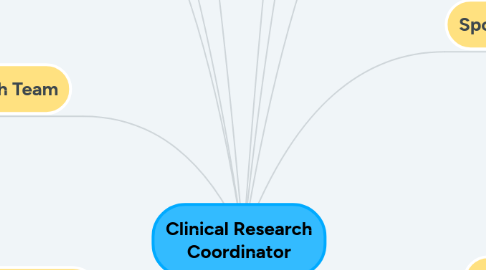Clinical Research Coordinator
by Rawan Alhawasly


1. Subjects
1.1. Verbal communication: -To ensure participants are fully informed of the study. -Answer their questions, concerns, and follow ups. Written communication: -Obtain consent to study participation. Non-verbal communication (facial expression and body language): -Build trust and confidence and develop positive relationships. -Supervise routine visits and procedures. -Detect non-verbal cues and behaviors.
2. Monitor
2.1. Written communication: -Send study data, reports, and all other required documents. -Clarification of any queries. Verbal communication: -Phone calls and monitoring visits (also non-verbal communication).
3. Site Personnel
3.1. Build positive work environment and support (non-verbal communication).
4. Clinical Research Team
4.1. Nurse
4.1.1. Verbal & non-verbal communication: -Supervise participants assessments, procedures, drug administration,etc. -Schedule subjects assessments and visits. -Notify of any adverse reaction that may occur.
4.2. Others:
4.2.1. Training and supervising (verbal & non-verbal). Verbal communication: -Identify study procedures -Ensure that regulatory documentation is up to date. Non-verbal communication: -Support the team and build positive work environment.
5. Laboratory Manager
5.1. Meet to ensure that the study requirements can be met (verbal & non-verbal communication).
6. Principal Investigator
6.1. Written communication: -Send procedure reports, study data, and other required documents. -REB submission to be reviewed. Verbal communication & Body language: -Keep IP informed of what is going on with the trial. -Discuss any potential barriers in patient recruitment, study logistic, or data collection. -Discuss study status and request signatures.
7. Research Ethic Board
7.1. Written communication: -REB submission. -Updates on the conduct of the study. -Provide follow-up for any question.
8. Clinical Research Assistant
8.1. Delegate some administrative tasks(verbal & non-vebal communication).
9. Clinical Research Assosiate
9.1. Verbal & non-verbal communication: -During study site visits and meetings. -Coordinate the delivery of the first batch of medication and other supplies (may also be written) Written communication: -Send required regulatory documents. -CRA send study protocol and any changes if applicable.
10. Sponser
10.1. Safety Associate
10.1.1. Written communication: -Submission of study data. -Report adverse events encountered by participants.
10.2. Biostatistician
10.2.1. Submission of study data and reports (Written communication).
